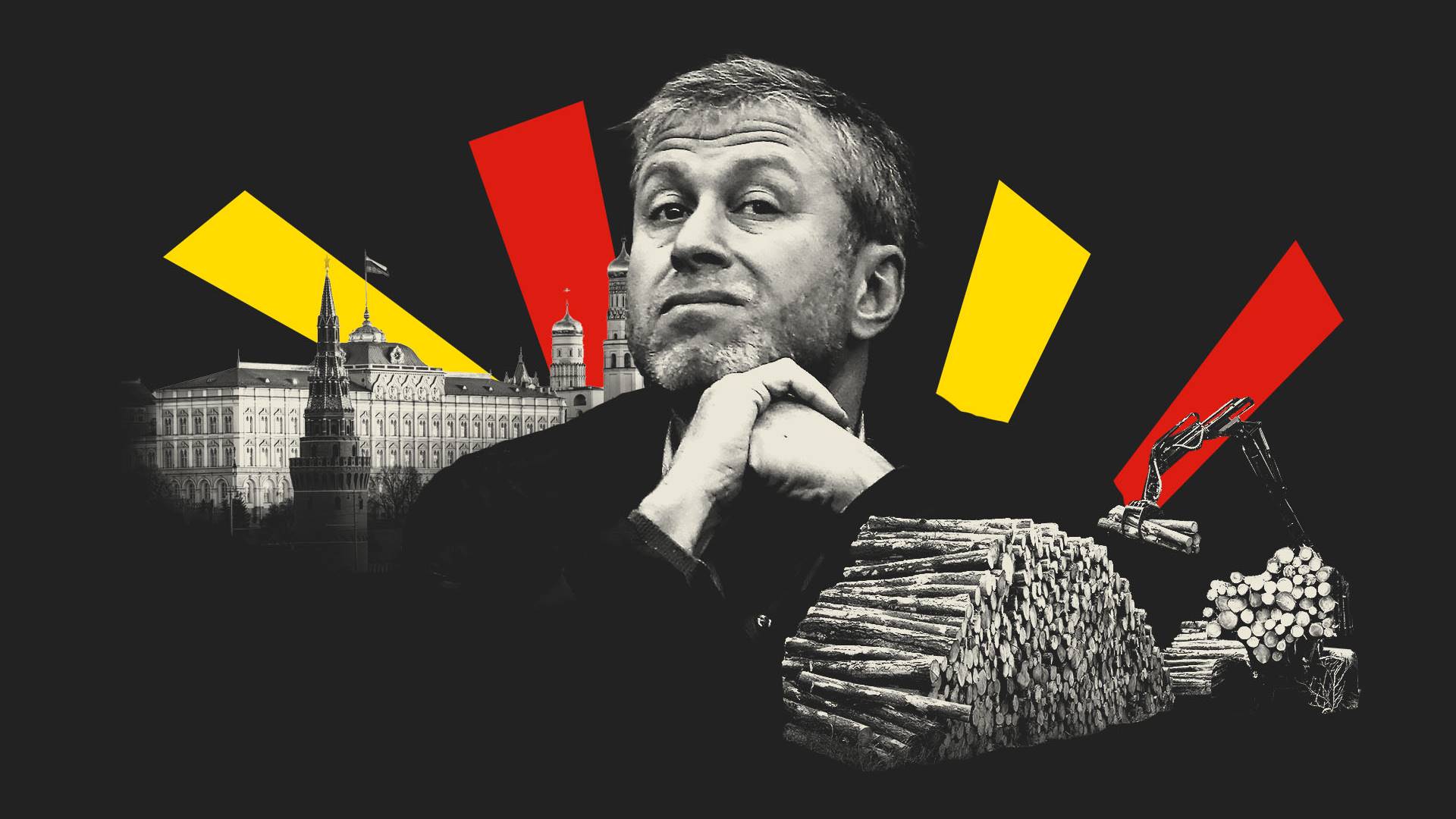Lawyers for Russian oligarch Roman Abramovich argue he should not be sanctioned because his ties to the Kremlin are weak…

…but new documents reveal he secretly had a years-long partnership with the Russian government in a forestry venture.
Russian billionaire Roman Abramovich was a direct partner of the Russian government for nearly a decade in a forestry venture worth at least half a billion dollars, leaked documents show, contradicting his claims that his links to the Kremlin were limited.
Abramovich, worth about $9 billion, was sanctioned for his Kremlin connections by the European Union and the U.K. following Russia’s invasion of Ukraine in February. The U.S. has not sanctioned Abramovich but has recently stepped up its hunt for his assets.
In a lawsuit aimed at getting the EU sanctions removed, Abramovich’s lawyers have argued that he has had no substantive ties to the Russian government.
But company records and leaked compliance documents from Cyprus show that Abramovich in fact invested heavily in a major forestry company, Russia Forest Products (RFP), in which the Russian government was also a significant shareholder. Both the Russian government and Abramovich sold their RFP stakes in January this year, just a month ahead of the invasion of Ukraine.
The new findings “lay bare the claim that [Abramovich] had no direct partnership with the Kremlin and did not benefit from that relationship,” said James Henry, an economist and longtime investigative journalist focusing on banking and the offshore sector.
“He has denied it, but because his holdings, including land and forestry concessions, were also or mainly in Russia, it makes sense that he would be a partner,” Henry added. “Russia’s economy is deeply political and the Kremlin controls everything of importance.”
A shareholder since 2008, Abramovich held just under a third of RFP by 2013 through a British Virgin Islands-registered company called Minden, according to contracts, loan agreements, deeds, and other internal correspondence obtained by OCCRP. Through Minden, he appears to have invested about $230 million into the forestry company between 2008 and 2016, the documents show.
In 2013, the Kremlin became Abramovich’s partner when it invested in RFP through a Cyprus-registered company called Amarudo. By 2021, Amarudo was RFP’s largest shareholder, holding over 40 percent of the company. Amarudo is a fully owned subsidiary of the Russia-China Investment Fund (RCIF), an investment company headquartered in Moscow.
The RCIF has declared in public documents that it is 45 percent owned by the Russia Direct Investment Fund (RDIF), Russia’s sovereign wealth fund, with another 40 percent being owned by the Chinese government, and 15 percent by a Chinese investment management company, Citic Capital. However, a 2013 confidential agreement obtained by OCCRP indicates that RDIF controlled 60 percent of RCIF at that time.

The Russian government’s stake in RFP came to light through a paper trail of company records linked to the January 2022 sale of RFP to Lida, a Japanese company listed on the Tokyo Stock Exchange.
Henry said the fact that a number of RCIF’s senior staff are Russian, 70 percent of its investments are in Russia, and its largest stake is held by the Russian government gives Moscow “a lot of effective control as a shareholder.”
Still, the fund’s corporate structure has allowed it to avoid being sanctioned by the U.S., EU, and the U.K., which all require that more than half of a company be owned by Russia to qualify.
The RDIF, on the other hand, was sanctioned in March. A statement from the EU Council said that it had prohibited members to “invest, participate or otherwise contribute to future projects co-financed by the Russian Direct Investment Fund.”
Neither Abramovich nor RCIF responded to requests for comment.
Cutting Ties and Winning Big
In 2016, Minden transferred its 31.37-percent stake in RFP to Protonius, a Cypriot holding company. Company documents show that Protonius — which invests in real estate, primarily in Russia — handled more than $1.6 billion in revenue in 2020.
Protonius and its investments were managed by the Moscow branch of Abramovich’s private investment company, Millhouse. But Abramovich’s ownership of Protonius would have remained hidden if not for a leak of documents from Cypriot corporate services provider Meritservus, which had Protonius as a client.
One letter from Meritservus confirms that Abramovich is the ultimate beneficial owner of Protonius while detailing the complex corporate structure that obscured his connection to the firm.
According to the letter, Protonius is jointly owned by two British Virgin Islands companies, Ronero Investments Limited and Capricornus Investments Limited. Capricornus is in turn owned by Ronero, the Meritservus letter says, meaning that Ronero ultimately owns 100 percent of Protonius.

As for who owns Ronero, the letter goes on to say that the company’s shares are held by the Cypriot company, Corptec Trustee Limited, on behalf of a Jersey-based trust called Grano Trust — and that Abramovich “is the settlor and ultimate beneficiary of Grano Trust.”

The sale of RFP, just one month before Russia’s invasion of Ukraine, helped insulate Protonius from the anti-Russia sanctions backlash.
It also earned Abramovich a major payout: Correspondence from the leak shows that Protonius paid out over eight billion rubles (around $110 million) to Abramovich’s personal accounts at Credit Suisse and to the accounts of Capricornus and Ronero, Protonius’s parent companies owned by Abramovich’s trust, as the sale was finalized.
(OCCRP)
Napomena o autorskim pravima: Dozvoljeno preuzimanje sadržaja isključivo uz navođenje linka prema stranici našeg portala sa koje je sadržaj preuzet. Stavovi izraženi u ovom tekstu autorovi su i ne odražavaju nužno uredničku politiku The Balkantimes Press.
Copyright Notice: It is allowed to download the content only by providing a link to the page of our portal from which the content was downloaded. The views expressed in this text are those of the authors and do not necessarily reflect the editorial policies of The Balkantimes Press.
